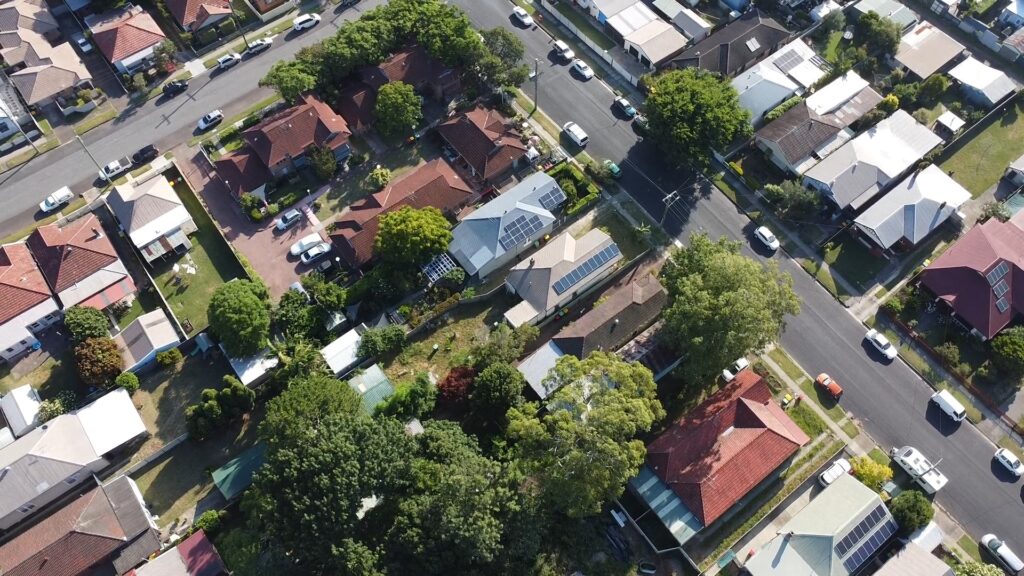Posts in Category: Atlanta Real Estate Insights
Selling Your Property in Atlanta: Strategies for Maximizing Returns
Selling a property is a significant financial transaction, and in the competitive real estate market of Atlanta, it’s crucial to maximize your returns. Whether you’re selling a family home, an investment property, or a luxury estate, strategic planning and execution can make a substantial difference in the final sale price. In this article, we’ll explore effective strategies for selling your property in Atlanta while optimizing your returns.

Pricing Strategy
One of the most critical factors in selling your property for maximum returns is setting the right price. Overpricing can deter potential buyers, while underpricing may lead to missed opportunities. Consider the following pricing strategies:
- Market Analysis: Collaborate with a real estate agent who has a deep understanding of the local Atlanta market. They can provide a comparative market analysis (CMA) to help determine the optimal price range for your property.
- Competitive Pricing: Position your property competitively within the market. Slightly below market value can attract more interest and potentially result in multiple offers, driving up the price.
- Online Tools: Utilize online pricing tools and calculators to get a rough estimate of your property’s value. However, consult with a real estate professional for a more accurate assessment.
Staging and Presentation
The way your property is presented can significantly impact its perceived value. Invest time and resources in staging and presentation:
- Declutter: Remove personal items and excessive clutter to make the space appear more inviting and spacious.
- Repairs and Upgrades: Address any necessary repairs and consider strategic upgrades that can add value to your property, such as kitchen renovations or landscaping improvements.
- Professional Staging: Consider professional staging services to showcase the property’s potential and highlight its best features.
Effective Marketing
Marketing plays a pivotal role in attracting potential buyers. In Atlanta’s competitive market, you need a comprehensive marketing strategy:
- High-Quality Photography: Invest in professional photography to create eye-catching listings. High-quality images attract more views and interest.
- Virtual Tours: Consider 3D virtual tours that allow potential buyers to explore your property remotely.
- Online Listings: Use popular real estate websites, social media platforms, and local listings to maximize your property’s online exposure.
Open Houses and Showings
Make your property accessible for potential buyers:
- Open Houses: Host open houses to attract a broader range of interested parties. Ensure the property is in pristine condition during these events.
- Flexible Showings: Be flexible with showing schedules to accommodate potential buyers’ preferences.
Negotiation Skills
Negotiating effectively is crucial to securing the best possible price for your property. Lean on the expertise of a real estate agent who can negotiate on your behalf, ensuring you get the most favorable terms.
Timing the Market
The timing of your property sale can influence returns:
- Seasonal Trends: Research seasonal trends in the Atlanta real estate market. Some seasons may be more favorable for selling certain types of properties.
- Economic Factors: Monitor economic indicators and market conditions. In a seller’s market with high demand and low inventory, you may have an advantage.
Selling your property in Atlanta with the goal of maximizing returns requires careful planning, pricing strategy, effective marketing, and skilled negotiation. Collaborating with a seasoned real estate agent who knows the Atlanta market inside and out can be instrumental in achieving your financial objectives. By following these strategies and leveraging professional guidance, you can optimize your property sale and secure the best possible returns in Atlanta’s dynamic real estate landscape.
Atlanta Real Estate Market: Affordability and Housing Challenges
The Atlanta real estate market has gained significant attention in recent years due to its rapid growth, economic opportunities, and attractive lifestyle offerings. However, along with its many advantages, the market faces its share of challenges, particularly in terms of affordability and housing availability. In this article, we’ll delve into the dynamics of the Atlanta real estate market, focusing on the affordability issues and housing challenges that both residents and investors need to consider.

The Atlanta Real Estate Landscape
The city of Atlanta has seen a surge in population and job growth, driving demand for housing across various price ranges. Its diverse neighborhoods, cultural attractions, and thriving job market make it an attractive destination for individuals and families alike. However, the growing demand has led to a rise in property prices, which has implications for both residents and potential investors.
Affordability Concerns
Affordability is a pressing concern in the Atlanta real estate market. While property prices in Atlanta are relatively lower compared to other major cities in the United States, the rapid rate of appreciation has outpaced income growth for many residents. This has resulted in challenges for first-time homebuyers and middle-income families looking to purchase homes.
Rising home prices have also affected the rental market, as higher property values often translate into higher rents. The combination of increased housing costs and stagnant wages has led to a situation where a significant portion of the population struggles to find housing that fits within their budget.
Housing Inventory Shortage
Another critical challenge in the Atlanta real estate market is the shortage of available housing inventory. The demand for homes has outstripped the supply, leading to bidding wars and elevated property prices. This shortage is particularly evident in the entry-level and mid-range housing segments, where affordability matters the most.
The housing shortage is a result of several factors, including increased migration to Atlanta, limited new construction, and the conversion of rental properties into short-term rentals. While efforts are being made to address this shortage, it remains a significant hurdle in creating a balanced real estate market.
Potential Solutions
Local government agencies, developers, and real estate professionals are working together to find solutions to the affordability and housing challenges in the Atlanta real estate market. Some of the initiatives include:
- Affordable Housing Programs: The city is implementing programs to incentivize the development of affordable housing units, ensuring that a portion of new developments caters to lower-income residents.
- Transit-Oriented Development: Focusing on mixed-use developments around public transportation hubs can create more accessible and affordable housing options for residents.
- Increased Construction: Encouraging the construction of new housing units, especially in the entry-level and mid-range segments, can help alleviate the shortage and reduce price pressures.
- Adaptive Reuse Projects: Converting underutilized properties into housing units can provide additional inventory and breathe new life into existing neighborhoods.
The Atlanta real estate market offers a dynamic landscape with both opportunities and challenges. While the city’s growth and economic vitality make it an attractive destination, the issues of affordability and housing availability cannot be overlooked. As residents and investors navigate the market, a careful consideration of these challenges, coupled with efforts from various stakeholders, can contribute to a more balanced and sustainable real estate environment in Atlanta.
The Role of Technology in Shaping the Future of the Atlanta Real Estate Market
The real estate industry is undergoing a significant transformation thanks to rapid technological advancements. As cities like Atlanta continue to grow and evolve, technology is playing a pivotal role in shaping the future of the real estate market. From property searches to transaction processes, here’s an in-depth look at how technology is influencing the Atlanta real estate landscape.
Enhanced Property Search and Discovery
Technology has revolutionized the way potential buyers search for properties. Online platforms, real estate websites, and mobile apps provide detailed listings, virtual tours, high-resolution images, and even 3D property walkthroughs. As Atlanta’s real estate market expands, technology makes it easier for buyers to explore properties remotely and narrow down their options before visiting in person.
Data-Driven Insights
The integration of data analytics tools helps real estate professionals, buyers, and sellers make informed decisions. These tools provide insights into market trends, property values, neighborhood growth, and even predictive analytics. In Atlanta, these insights are crucial due to the city’s diverse neighborhoods, each with unique market dynamics.
Virtual Reality and Augmented Reality (VR/AR)
VR and AR technologies are becoming invaluable in real estate. Virtual tours and interactive experiences allow potential buyers to explore properties as if they were physically present. This becomes particularly relevant in a sprawling city like Atlanta, where buyers may be searching for properties across different areas.
Blockchain and Smart Contracts
Blockchain technology is making its way into real estate transactions through secure and transparent smart contracts. These contracts automate and streamline various stages of the buying and selling process. In a city with a dynamic real estate market like Atlanta, this technology can speed up transactions and reduce fraud risks.
Property Management Solutions
Property management has been made more efficient by technology. Online portals and apps enable landlords and property managers in Atlanta to handle rent collection, maintenance requests, and communication with tenants remotely. This is especially useful given the city’s diverse tenant population.
Online Mortgage Applications
The mortgage application process has become more convenient with online platforms. Buyers in Atlanta can apply for mortgages, compare rates, and get pre-approved without the need for multiple in-person visits to banks or lenders.
Automated Valuation Models (AVMs)
AVMs use algorithms to estimate property values based on various data points. In a diverse city like Atlanta, where neighborhoods can vary greatly, AVMs provide a quick and data-backed way to assess property values.
Remote Closings and E-Signatures
E-signatures and remote closing technology have become increasingly popular, allowing buyers and sellers to finalize transactions without being physically present. In a city as bustling as Atlanta, these technologies streamline the closing process, accommodating busy schedules.
Online Real Estate Marketplaces
Online marketplaces connect buyers, sellers, and agents in an integrated platform. These platforms simplify the search for properties, helping buyers and sellers navigate Atlanta’s expansive real estate market more effectively.
Sustainability and Smart Homes
The focus on sustainable living and smart homes is growing in Atlanta. Technology-driven solutions allow for energy-efficient homes, smart appliances, and improved overall sustainability. This aligns with the city’s emphasis on growth and innovation.
Technology is reshaping the Atlanta real estate market in profound ways. As the city continues to expand and diversify, technology-driven solutions are enhancing the property search process, improving transaction efficiency, and promoting sustainable living. Embracing these advancements can help both buyers and sellers navigate the evolving landscape of the Atlanta real estate market.
Atlanta’s Real Estate Market: A Seller’s Market or Buyer’s Market?
The Atlanta real estate market has been a hot topic in recent years, attracting both local and out-of-state investors looking to capitalize on the city’s rapid growth and thriving economy. But one burning question on everyone’s mind is whether it’s currently a seller’s market or a buyer’s market. In this article, we’ll delve into the factors influencing Atlanta’s real estate market and provide insights into whether it currently favors sellers or buyers.

Understanding Seller’s Market and Buyer’s Market
Before we dive into the specifics of Atlanta’s real estate market, let’s first define what a seller’s market and a buyer’s market mean.
A seller’s market occurs when the demand for homes exceeds the available inventory, leading to increased competition among buyers. In such a market, sellers have the upper hand as they can command higher prices and receive multiple offers on their properties.
On the other hand, a buyer’s market arises when there is an abundance of available properties and demand from buyers is relatively low. In this scenario, buyers have more negotiating power, and sellers may need to be more flexible with their prices and terms to attract buyers.
The State of Atlanta’s Real Estate Market
In recent years, Atlanta’s real estate market has experienced a significant shift, transitioning from a balanced or buyer’s market to a strong seller’s market. This shift is primarily driven by several key factors.
- Population Growth and Influx of Residents: Atlanta has consistently been one of the fastest-growing cities in the United States, attracting new residents seeking job opportunities, affordable living, and a vibrant lifestyle. The influx of newcomers has increased demand for housing, putting pressure on the already limited housing inventory.
- Limited Housing Inventory: Atlanta’s real estate market has been grappling with a shortage of available housing inventory, particularly in desirable neighborhoods and close to major job centers. This scarcity of homes has led to increased competition among buyers and pushed prices higher.
- Low Mortgage Rates: Historically low mortgage interest rates have fueled demand for homes as buyers seek to take advantage of favorable financing options. Low rates have made homeownership more affordable for many, further driving demand in the market.
- Strong Economy: Atlanta’s robust economy has contributed to job growth and income stability, making it an attractive location for both local and out-of-state buyers. The city’s economic prosperity has played a significant role in stimulating the real estate market.
Impact on Sellers and Buyers
The seller’s market in Atlanta has created a favorable environment for homeowners looking to sell their properties. Sellers can expect quicker sales and multiple offers, often leading to selling prices that meet or exceed their asking prices. However, sellers should still be cautious not to overprice their homes, as an unrealistic asking price could deter potential buyers.
On the flip side, buyers in Atlanta’s real estate market are facing challenges due to the limited inventory and increased competition. Bidding wars and multiple offer situations have become common, making it crucial for buyers to act swiftly and present compelling offers. In such a competitive environment, it’s essential for buyers to be pre-approved for a mortgage and work closely with a real estate agent who has a pulse on the market.
As of now, Atlanta’s real estate market is firmly entrenched in a seller’s market, driven by population growth, limited housing inventory, low mortgage rates, and a strong economy. Sellers can take advantage of this favorable market to achieve quick sales and favorable prices, while buyers must be prepared to act decisively and strategically to secure their desired properties.
As with any real estate market, conditions can change over time, so it’s essential for both sellers and buyers to stay informed and adapt their strategies accordingly. Whether you’re looking to sell or buy in Atlanta, working with a knowledgeable and experienced real estate agent can help you navigate the dynamic market successfully.
How to Benefit from the Future Growth of Atlanta’s Real Estate Market
Atlanta’s real estate market has been growing steadily over the years, and projections suggest that this trend will continue for the foreseeable future. With this in mind, there’s no better time to invest in Atlanta real estate than now. In this article, we’ll explore some strategies for benefiting from the future growth of Atlanta’s real estate market.
Research the Market
Before you invest in Atlanta real estate, it’s crucial to do your research. This means studying the current trends and projections for the market, analyzing the local economy and job market, and understanding the supply and demand dynamics of different neighborhoods and property types. By taking the time to understand the market, you’ll be able to make more informed investment decisions that are more likely to yield profitable returns in the long run.
Focus On Growth Areas
While Atlanta as a whole is experiencing growth, certain neighborhoods and areas are poised for even greater growth in the future. These are the areas where you should focus your investment efforts. Look for neighborhoods that are experiencing population growth, new developments, and job growth, as these are all indicators of a thriving real estate market. It’s also important to consider factors like school districts, public transportation, and access to amenities like shopping, dining, and entertainment, as these can all impact property values.

Diversify Your Portfolio
One way to benefit from the growth of Atlanta’s real estate market is to diversify your portfolio. This means investing in different types of properties, such as single-family homes, multi-family buildings, and commercial properties. By diversifying your portfolio, you can spread your risk and capitalize on different aspects of the real estate market. For example, if the residential market slows down, you may still be able to generate income from your commercial properties.
Consider Long-Term Investments
Investing in Atlanta real estate is not a get-rich-quick scheme. Rather, it’s a long-term investment that requires patience, persistence, and a commitment to building a portfolio of profitable properties over time. This means that you should focus on properties that are likely to appreciate in value over time, rather than trying to flip properties for a quick profit. By taking a long-term approach, you can build a sustainable real estate portfolio that generates consistent cash flow and provides a solid return on investment over time.
Leverage Technology
Technology is playing an increasingly important role in the real estate market, and savvy investors are leveraging these tools to gain a competitive edge. For example, you can use online real estate platforms to find and analyze properties, connect with buyers and sellers, and manage your portfolio. You can also use technology to automate your property management tasks, such as rent collection and maintenance requests. By using technology to streamline your real estate investment process, you can save time, reduce costs, and make more informed investment decisions.
Work With a Real Estate Professional
One of the best ways to benefit from the growth of Atlanta’s real estate market is to work with a real estate professional. A knowledgeable real estate agent or broker can help you navigate the market, identify promising properties, negotiate deals, and manage your portfolio. They can also provide valuable insights into the local market and connect you with other professionals, such as attorneys and accountants, who can help you navigate the legal and financial aspects of real estate investing.
Investing in Atlanta real estate is a smart move for anyone looking to benefit from the future growth of the market. By doing your research, focusing on growth areas, diversifying your portfolio, taking a long-term approach, leveraging technology, and working with a real estate professional, you can maximize your chances of success and build a profitable real estate portfolio over time.
